Ethiopia
Ethiopian Prime Minister Abiy Ahmed said Monday the Tigray region's dissident leaders had fled west of the regional capital after weeks of fighting but indicated federal forces were monitoring them closely and would attack them soon.
Abiy, winner of last year's Nobel Peace Prize, this month ordered military operations against leaders of Tigray's ruling party, the Tigray People's Liberation Front (TPLF), in response to what he said were TPLF-organised attacks on Ethiopian federal army camps.
More than three weeks of fighting between federal soldiers and pro-TPLF forces has left thousands dead in the northern region, and prompted tens of thousands of refugees to flee across the border into Sudan.
"I want them to hear me: yesterday evening, around midnight, we saw them from the situation room in the area between Hagere Selam and Abiy Addi," Abiy said in remarks to lawmakers, referring to two towns west of the Tigray capital Mekele.
"We didn't attack them at night because as they retreated they took their wives, children and abducted soldiers... But this will not continue."
The fighting has been a dramatic escalation of tensions between Abiy and the leaders of the TPLF, which dominated Ethiopian politics for nearly three decades before anti-government protests swept Abiy to office in 2018.
Abiy said on Saturday the military operations were "completed" after federal forces claimed control of the Tigray regional capital Mekele.
The TPLF leaders, however, have repeatedly vowed to fight on as long as federal forces are on Tigrayan soil.
Their exact whereabouts remain unknown.
'Mekele is ours'
As the Ethiopian military bore down on Mekele last week, global concern mounted about a possible bloodbath in a city that, before the conflict, had a population of half a million.
A communications blackout in Tigray has made it difficult to verify claims from both sides about how the fighting is going.
On Monday, Abiy claimed soldiers did not kill any civilians as they took over Mekele and other cities in Tigray.
"Mekele is ours, it was built with our own resources. We are not going to destroy it," he said. "Not even a single person was harmed by the operation in Mekele."
The International Committee of the Red Cross said Sunday that hospitals in Mekele were flooded with trauma patients, though it did not specify how the injuries were sustained.
Abiy also dismissed claims from TPLF leader Debretsion Gebremichael that airstrikes had resulted in many civilian casualties.
As Abiy tries to shift towards helping Tigray recover, the national human rights body called Monday for telecommunications to be restored and for water, electricity, and health services to resume.
The Ethiopian Human Rights Commission (EHRC), which is government-affiliated but independent, also noted "complaints of ethnic profiling" including "forced leave from work" and travel restrictions.
"EHRC is gravely concerned that while there is no government policy nor legal framework condoning ethnic profiling, security measures designed to apprehend certain suspected individuals overstepped their remit of application, thereby affecting a wider community," it said.
Rising tensions
In a marathon four-hour address, his first to lawmakers since the conflict began, Abiy fielded multiple questions about why he had not moved against the TPLF leadership earlier.
The party has complained of being sidelined, targeted for corruption prosecutions and scapegoated for the country's woes under Abiy's rule.
Tensions rose dramatically after Tigray held its own elections in September, flouting a nationwide ban on polls because of the coronavirus pandemic.
It then tried to brand Abiy an illegitimate ruler.
He accused the TPLF of fomenting internal conflict, including ethnic clashes, throughout the country during his tenure, leaving only Tigray unaffected.
"They said peace is only in Tigray region and it's true, because the perpetrators are there themselves," he said.
Refugees free to return
Abiy vowed Monday that Ethiopia would be able to quickly welcome back Ethiopian refugees in Sudan.
He questioned, though, why the refugees were "mostly male" and suggested they could have been involved in a massacre in the Tigray town of Mai-Kadra that the EHRC says killed 600 people.
Abiy's government has seized on the massacre as evidence of pro-TPLF forces' brutality, though refugees in Sudan told AFP that pro-government forces were involved in killings in Mai-Kadra.
A recent breakdown from the UN refugee agency indicated 57 percent of Ethiopian refugees in Sudan were male and 43 percent female.
Abiy also thanked Eritrea for its support during the conflict, including helping Ethiopian soldiers who at one point were forced to retreat over Ethiopia's northern border onto Eritrean soil.
"When the junta sent Ethiopian defense forces naked to Eritrea, the Eritrean people clothed them, gave them water, fed them, and gave them arms. The Ethiopian people should know it and respect it," Abiy said.




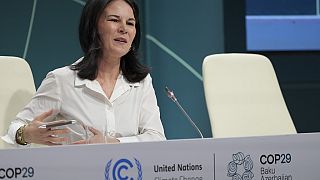
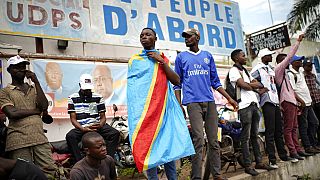
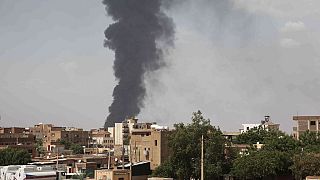

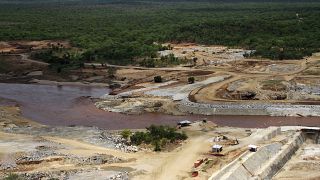
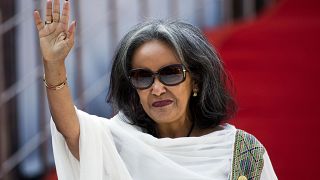
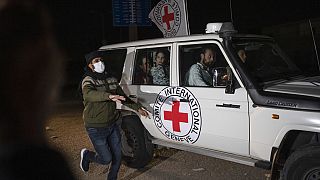
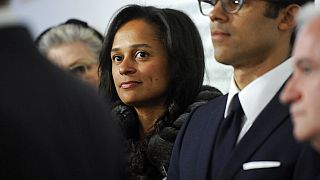
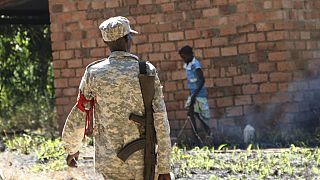
00:58
Somaliland opposition leader wins presidential poll
11:07
Botswana's new government races to diversify its economy {Business Africa}
01:51
Meet the churches welcoming migrants across the world and championing diversity
Go to video
Ethiopian runner Yomif Kejelcha breaks men's half-marathon world record
01:38
Malaysia, Ethiopia agree to strengthen bilateral ties
00:41
Ethiopian PM Abiy Ahmed meets Putin at BRICS Summit, pushes for stronger trade ties